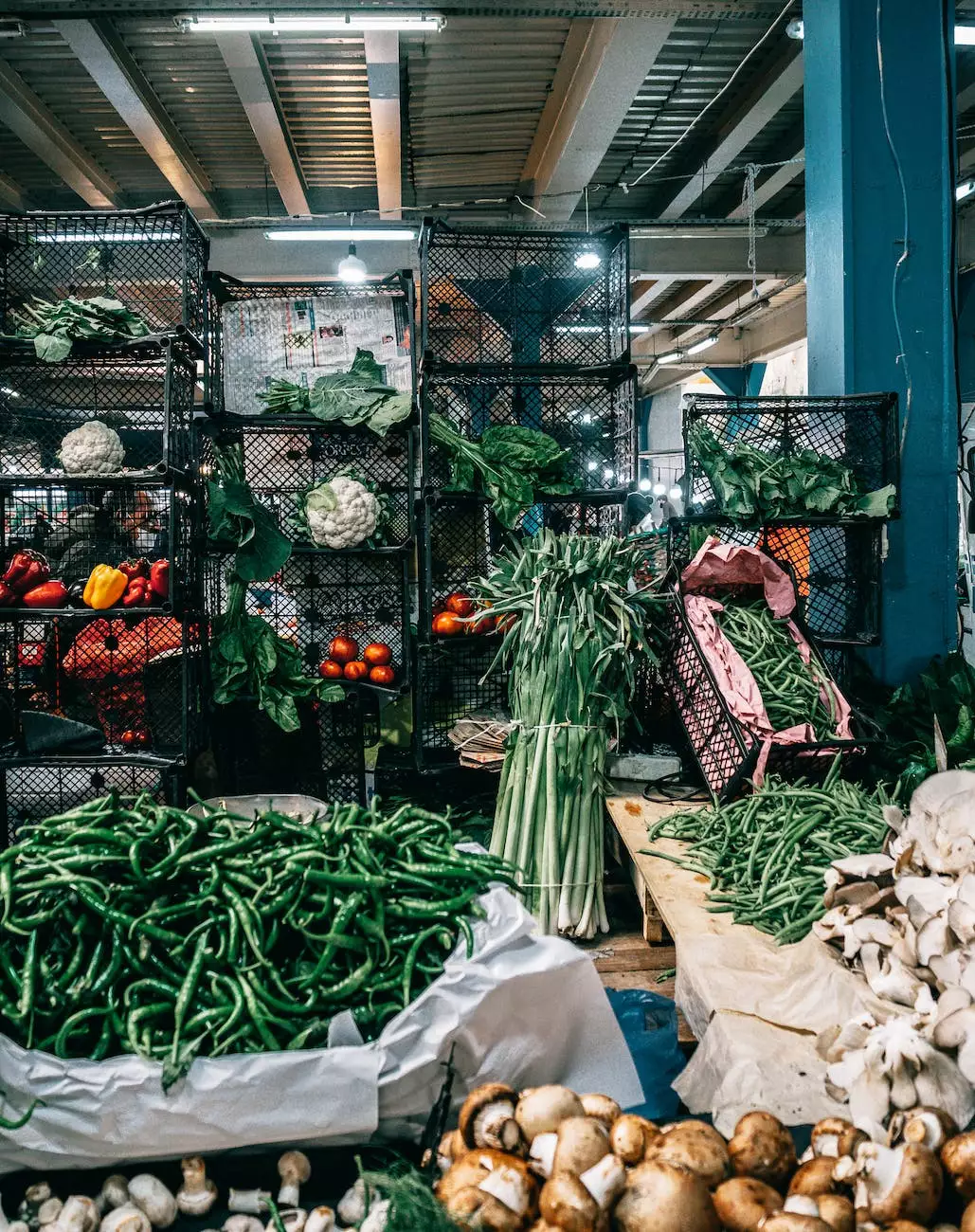Ultimate Guide to Reducing Your Food Spending
Financials & Reports
The Importance of Saving Money on Groceries
In today's society, where the cost of living continues to rise, finding ways to save money is crucial. One area where we can make significant savings is on our grocery bills. By implementing smart shopping strategies and making informed decisions, you can reduce your food spending without compromising on the quality of your meals. In this comprehensive guide, the experts at Social Service of America will provide you with valuable insights and practical tips to help you save money on groceries.
Understanding the Psychology of Food Shopping
Before we dive into the practical tips, it's important to understand the psychology behind food shopping. Supermarkets are designed to encourage impulse buying and increase their sales. By being aware of these tactics, you can resist the urge to overspend and make more intentional choices. Remember that every dollar you save on groceries can be redirected towards other important financial goals.
Plan Your Meals and Make a Grocery List
One effective way to reduce your food spending is by planning your meals in advance. Dedicate some time each week to create a meal plan, taking into account your dietary preferences and any leftover ingredients you have. Once you have your meal plan, make a detailed grocery list ensuring that you only purchase what you need. Stick to your list while shopping to avoid unnecessary purchases.
Shop Smartly and Take Advantage of Sales and Discounts
When you head to the supermarket, keep an eye out for sales and discounts. Check the store's weekly ads and browse coupon websites to find the best deals. Buying items in bulk or taking advantage of buy-one-get-one offers can significantly lower your grocery expenses. However, be mindful of your needs and storage capacity. Don't buy more than you can realistically consume before the food expires.
Embrace Seasonal and Local Produce
Opting for seasonal and locally grown produce is not only beneficial for your health and the environment but also for your wallet. Seasonal fruits and vegetables tend to be cheaper and packed with flavor. Visit local farmer's markets or consider joining a community-supported agriculture (CSA) program to support local producers and access fresh, affordable produce.
Ways to Save Money on Staple Grocery Items
Minimize Food Waste
Reducing food waste is not only an ethical choice but also a great way to save money. Plan your meals based on ingredients that need to be used up soon, and properly store leftovers to avoid spoilage. Get creative with your leftover ingredients by repurposing them into new dishes or freezing them for future use. Additionally, organize your pantry and fridge to prevent food from getting lost or forgotten.
Buy Generic and Store Brands
Consider buying generic or store brand products instead of their branded counterparts. These products often have similar quality but come with a lower price tag. Compare the ingredient lists and nutritional information to ensure you're making a wise choice. Over time, this simple switch can lead to substantial savings.
Cook and Prepare Your Meals at Home
Eating out or relying on pre-packaged convenience meals can quickly drain your wallet. Cooking your meals at home allows you to have complete control over the ingredients you use and the portion sizes. It's also a great opportunity to develop your culinary skills and experiment with new recipes. Invest in a few key kitchen tools and equipment to make cooking at home more efficient and enjoyable.
Utilize Leftovers and Plan for Meal Prepping
Leftovers are a valuable asset when it comes to saving money on groceries. Instead of letting them go to waste, plan your meals to include leftovers. Alternatively, dedicate a specific day each week for meal prepping. Cook larger quantities of meals that freeze well, and portion them out for easy, cost-effective meals throughout the week. Not only will this save you money, but it will also save you time and effort in the long run.
Additional Tips and Strategies for Saving Money on Groceries
Use Cashback Apps and Loyalty Programs
Make the most out of technology by using cashback apps and loyalty programs offered by supermarkets. These apps allow you to earn cashback or rewards points on your grocery purchases, which can later be redeemed for discounts or freebies. Take advantage of these incentives to further reduce your food spending.
Grow Your Own Herbs and Vegetables
If you have the space and time, consider starting a small herb or vegetable garden. Growing your own produce not only provides you with fresh, organic ingredients but also saves you money. Herbs, in particular, can be expensive when bought in small quantities at the store. By growing your own, you'll have an abundant supply right at your fingertips.
Shop at Discount Stores and Farmers Markets
Don't limit yourself to traditional supermarkets. Discount stores and farmers markets can offer great deals on groceries. Discount stores often carry lesser-known brands at discounted prices, while farmers markets connect you directly with local growers, cutting out the middleman and reducing costs. Explore these alternative shopping options to find additional savings.
Reduce Your Meat Consumption
Meat can be one of the most expensive items on your grocery list. Consider reducing your meat consumption and incorporate more plant-based proteins into your diet. Beans, lentils, tofu, and tempeh are all affordable and nutritious alternatives. Experiment with vegetarian or vegan recipes to discover delicious options that won't break the bank.
Join a Food Co-op or Community Garden
Food co-ops and community gardens provide opportunities for community members to come together and collectively access affordable, fresh produce. By joining a co-op or contributing to a community garden, you'll become part of a network that values sustainable, affordable food. Plus, you'll have the chance to connect with like-minded individuals who can share their knowledge and money-saving tips.
Conclusion
Reducing your food spending is an achievable goal with the right strategies and mindset. By implementing the tips and techniques presented in this Ultimate Guide to Reducing Your Food Spending, you'll be well on your way to saving money on groceries and making the most out of your budget. Remember, every small change adds up, and your dedication to smart shopping can have a significant impact on your financial well-being. Start implementing these strategies today and enjoy the benefits of a more wallet-friendly and fulfilling grocery shopping experience.










